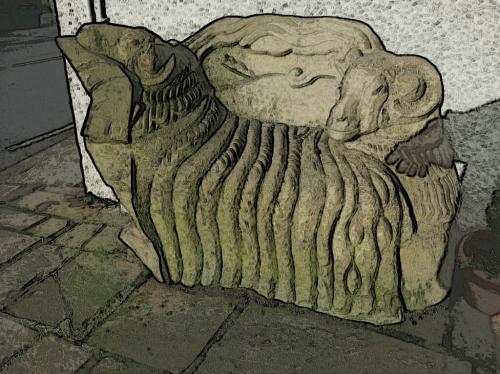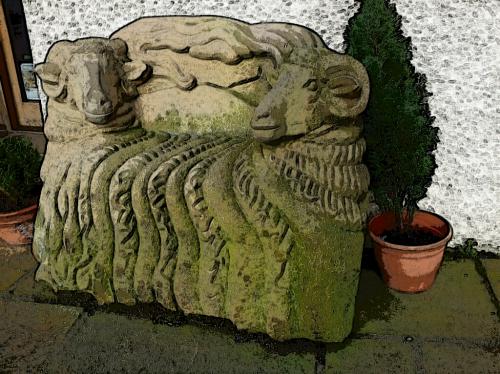Right Livelihood: Shambhala Sun Foundation seeks Associate Publisher
Right Livelihood: Shambhala Sun Foundation seeks Associate Publisher |
- Right Livelihood: Shambhala Sun Foundation seeks Associate Publisher
- Mind and Life Institute offers new “Contemplative Studies Fellowship”
- Sheep Benches - Room For One
- Burma’s Opening Door
- People Have the Power
| Right Livelihood: Shambhala Sun Foundation seeks Associate Publisher Posted: 17 Jan 2012 10:00 AM PST We at the Shambhala Sun Foundation — the independent, nonprofit corporation which publishes the Shambhala Sun and Buddhadharma magazines — are seeking a colleague to join our leadership group and help us broaden our current successful publishing activities, partnership ventures, and special events, as well as help us expand into new areas of community building and new media publishing. Click here for details. Read More @ SourceLiving Zen: Fearlessness (February 18, 2010) This posting includes an audio/video/photo media file: Download Now |
| Mind and Life Institute offers new “Contemplative Studies Fellowship” Posted: 17 Jan 2012 08:00 AM PST
For more about Mind and Life and its unique and crucial role in the emerging field of contemplative science, don't miss the feature story "The New Science of Mind," in the next (March 2012) Shambhala Sun magazine — available on newsstands in the first week of February. Read More @ SourceThe Heart Sutra Song 心经 This posting includes an audio/video/photo media file: Download Now |
| Posted: 16 Jan 2012 02:00 PM PST   I learned today the merit of responding to difficult and painful circumstances, via email, by letting somebody know all I could do was sit still. At the time of writing I felt at a bit of a loss as to what to say for the best. That I was sitting still was _really_ all I could come up with. It turns out that hit the spot. Thankfully. This post is for all those who find themselves in an unhappy and challenging place. Sometimes sitting still and simply that is enough to do great good. For oneself and for others. And getting up from our bench, an alone place just for one, and walking into the next thing is enough too. Especially when the way is not clear at all. From my experience life throws up what is needed but that my not be what one wants! Sorry. And some times what one gets is totally unreasonable. In which case it is best to acknowledge that - and walk on. Head held high but not with nose in air! Read More @ Source |
| Posted: 16 Jan 2012 12:00 PM PST
The news from Burma this week is encouraging. The doors of freedom continue to open. On January 12, the government of Myanmar and ethnic rebels of the Karen National Union signed a cease-fire and peace agreement that lays the groundwork for the end of a sixty-year insurgency and struggle for greater autonomy. The next day, as hundreds gathered outside prison gates, Burma released 651 inmates, many of them known as prisoners of conscience, including prominent monk U Gambira, "88-Generation" leaders Min Ko Naing and Ko Ko Gyi, former prime minister Khin Nyunt, and other prominent figures. Later that same day President Obama acknowledged this release as "a substantial step forward for democratic reform." Secretary of State Hillary Clinton announced an exchange of ambassadors with Myanmar for the first time in 24 years. Clinton said, "This is a lengthy process, and it will, of course, depend on continuing progress and reform. But an American ambassador will help strengthen our efforts to support the historic and promising steps that are now unfolding." The government of recently-elected president Thein Sein has made significant efforts towards the opening of society. Instead of the former junta's reflexive and rhetorical hostility towards so-called political prisoners, Thein Sein said yesterday that those released can "play a constructive role in the political process." The prospect is at once encouraging and fragile. All the political prisoners have not been released. The total number is itself uncertain. The Assistance Association of Political Prisoners (AAPP) is a respected organization headquartered on the Thai-Burma border, which carefully documents the status of Burmese prisoners. According to AAPP may still be as many as 1500 prisoners of conscience in Burma. There are still hot conflicts in Kachin and Shan states. Reflecting on these conflicts in an interview last week, Aung San Suu Kyi said: "Unless there is ethnic harmony it will be very difficult for us to build up a strong democracy." And, needless to say, there is hardly a coherent rule of law in the country. Recognizing that such changes are in process and remain incomplete, the U.S. government and the EU seem to be looking toward April's by-elections in Myanmar, elections in which Aung San Suu Kyi is herself planning to stand for parliament, before mitigating or rescinding longstanding economic sanctions. Among circles of Burma's friends there has been an ongoing debate about the efficacy of western sanctions. At the risk of oversimplification, one side argues that sanctions by the U.S. and European nations fall most heavily on the shoulders of the Burmese people themselves; that sanctions have obstructed the process of liberalization; and that they have thrown Burma into the arms of Chinese economic and military interests. The other side, taking direction from Aung San Suu Kyi, sees sanctions as an into Burma's long-term military rulers, and as a withholding of approval/privilege to the regime until ethnic conflict is resolved, political prisoners are released, and internationally-recognized legal principles are enacted. I tend to fall in the second camp, taking leadership from Aung San Suu Kyi as the point person for legitimate politics in Burma/Myanmar. This debate will probably never end, irrespective of change in Burma. But one could make the case that the sanctions have, in a sense, "worked." The economic pressures compelled the regime to throw its lot in with China, which has its own strategic and global interests at heart, not the interests of Burma's peoples. After last year's elections in Myanmar, it is clear that the new government craves international recognition, and does not wish to see itself subsumed by China's economic power. So they are looking to the end of western sanction, which calls for liberalization and openness on various fronts. But still we can hope. At the same time, opening Burma — with its wealth of natural resources, agriculture, and people — to the international market economy will bring its own challenges and contradictions. The sweet things people cherish about Burma's culture will very likely fade in the transition. One door opens, and another may close. Postscript: I am leaving for Asia later this month, with a planned stop in Burma in early February. This will be a timely opportunity again to see the process of change first hand, and to speak with those who are actually enacting some of these changes. I hope to have much more to tell you on my return.
Previously by Alan Senauke on Shambhala SunSpace:
Maz Jobrani - Buddhist Bomber This posting includes an audio/video/photo media file: Download Now |
| Posted: 16 Jan 2012 11:00 AM PST Here's something to contemplate for the day. Patti Smith for MLK day and Occupy at Riverside Church NYC "People have the power, to redeem the work of fools." Light at the Edge of the World-The Science of the Mind [5/5] This posting includes an audio/video/photo media file: Download Now |
| You are subscribed to email updates from BuddhaRocks ☸ Buddhist To stop receiving these emails, you may unsubscribe now. | Email delivery powered by Google |
| Google Inc., 20 West Kinzie, Chicago IL USA 60610 | |

 The Mind and Life Institute, which is dedicated to building a scientific understanding of the mind to reduce suffering and promote well-being," has announced a new grant opportunity, the Mind and Life Contemplative Studies Fellowship (MLCSF). Sponsored in part by the John Templeton Foundation, the grant program provides substantial funding for humanities and social science scholars interested in interdisciplinary research related to the study of contemplative practices. U.S. and international applicants are eligible; the current grant deadline is February 15, 2012.
The Mind and Life Institute, which is dedicated to building a scientific understanding of the mind to reduce suffering and promote well-being," has announced a new grant opportunity, the Mind and Life Contemplative Studies Fellowship (MLCSF). Sponsored in part by the John Templeton Foundation, the grant program provides substantial funding for humanities and social science scholars interested in interdisciplinary research related to the study of contemplative practices. U.S. and international applicants are eligible; the current grant deadline is February 15, 2012.  A guest post by Hozan Alan Senauke
A guest post by Hozan Alan Senauke